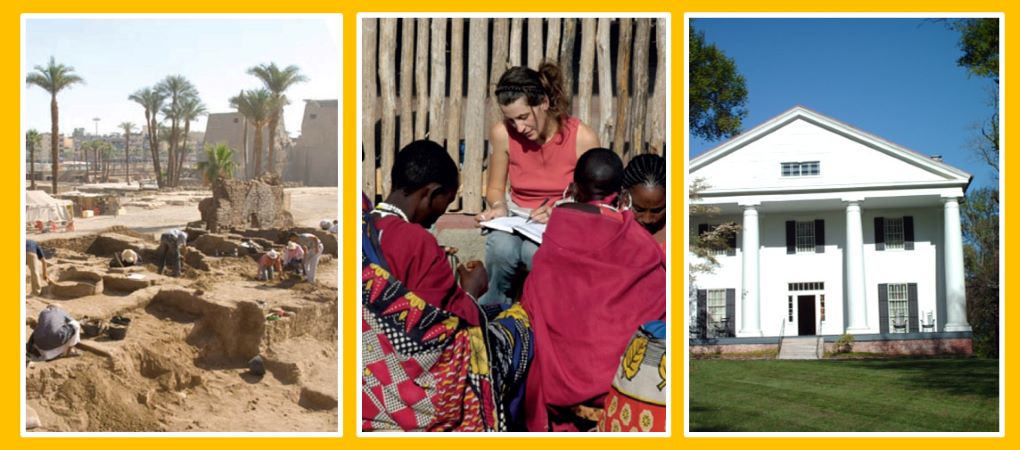Engage with Anthropology Experiences
Welcome to the virtual home for KSU Anthropology Internship and Research Experiences. Here you’ll find all the information you need to get started engaging with anthropology outside of the classroom.
How Do I Get Experience?

It can be very overwhelming to think about life after KSU. What are the options? What can I do with an anthropology degree? What if I don’t know what I want to do yet? For starters, check out the career section of the American Anthropological Association. The great news is that you will have a lot options because anthropology coursework and experiences build a variety of transferable skills.
What are transferable skills? These are skills you build and can take to just about any career. Examples include: oral and written communication, research and analytical skills, leadership, numeracy, etc. Experience in anthropology can build a resume that is full of these kinds of skills, rather than just direct experience in one area. A resume of transferable skills makes you very competitive on the job market.
One of the most common questions is about how to get started. From there, it's about figuring out what opportunities are out there and how to find out about them.
What Opportunities Are Available?
To be competitive in the job or graduate school market after KSU, you need a variety of experiences in work and in research. We recommend that you get as many experiences as possible during your time at KSU.
-
Work Experience
Work ExperienceWork experiences are generally those that expose you to jobs in, or related to, anthropology. You can choose to get work experience for course credit, or if you have enough credits, as a non-credit option.
- Internships are usually off-site, but can occur at KSU if they are outside the department. You can do an internship for course credit (ANTH 3398) or on your own. Anthropology majors are required to get 3 hours of ANTH 3398 or ANTH 3397.
- Shadowing and volunteering programs are another great way to get work experience, but usually require less commitment than an internship. Many organizations do not have the infrastructure for an internship program, but are willing to take you on so that you can gain experience in that field. Always reach out to an organization about these opportunities- it never hurts to ask!
- Field schools are nothing short of amazing. All disciplines of anthropology offer field schools, some local, some abroad. Field school experiences are usually not paid but can be used for course credit to satisfy an upper-division elective or substitute for the required 3 hours in internship or practicum. Check out the AAA’s AnthroGuide for field schools.
- Teaching Assistant: Some faculty members have teaching assistant positions available for courses you have already taken. These positions are not paid in our department, but you may be able to get course credit for your work as a TA. Reach out to a professor you want to work with and see if they offering a teaching assistant position.
-
Research Experiences
Research experiences are generally those that expose you to creating and executing research questions related to anthropology. You can choose to get research experience for course credit, or if you have enough credits, as a non-credit option.
- Practicums: research practicums are usually on-campus, working directly with a faculty member to complete independent research. You can do a practicum for course credit (ANTH 3397). Anthropology majors are required to get 3 hours of ANTH 3398 or ANTH 3397.
- Directed Applied Research (DAR): DARs are also usually on-campus, working directly with a faculty member to assist with a research project. You can do a DAR for course credit (ANTH 4100), which will satisfy an upper-division elective in the discipline of the faculty member (e.g. archaeology).
- Research Assistant: Some faculty members have research assistant positions available for their ongoing projects. These positions are usually not paid in our department. Reach out to a professor you want to work with and see if they offering a research assistant position. Be sure to check out their faculty web page to explore their area of research!
-
Go Abroad
A fantastic way to get experience is to go abroad. You can go abroad for a semester (e.g. summer semester), for a field school, or just to travel! We strongly encourage that you investigate the options and financial resources available. Find out more information about going abroad at KSU Education Abroad and get to know your professors in anthropology. Many of them host international field schools and research opportunities in Europe, South America, Africa, and beyond.








